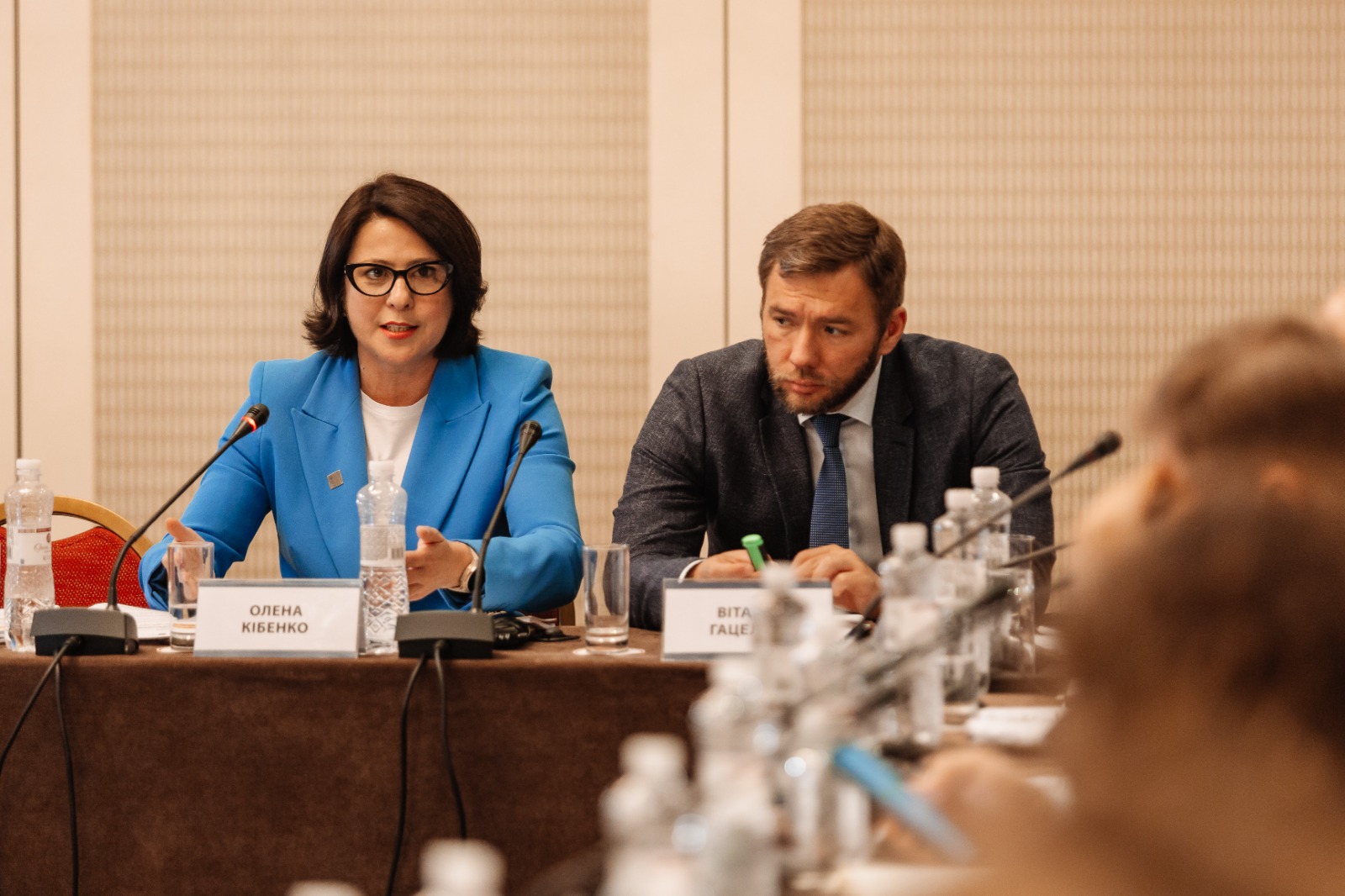Olena Kibenko participates in a roundtable event on the attractiveness of a judicial career
On September 23, Olena Kibenko, a member of the UBA Board and a judge at the Cassation Commercial Court within the Supreme Court, took part in a roundtable discussion ‘Attractiveness of the Judicial Career: European and Ukrainian Dimensions’. The event was organized by the High Council of Justice, the High Qualification Commission of Judges of Ukraine, and the EU Project Pravo-Justice.
The roundtable gathered Ukrainian MPs, representatives of the Supreme Court, High Council of Justice, High Qualification Commission of Judges, Council of Judges, State Judicial Administration, National School of Judges, Public Integrity Council, and Ukraine’s international partners from the European Network of Councils for the Judiciary and experts from the EU Project Pravo-Justice.
The key topic of the discussion revolved around the attractiveness of the judicial career in the Ukrainian and European dimensions, existing challenges and opportunities to overcome them.
During her speech, Olena Kibenko addressed the specific challenges of transitioning into a judicial career from other legal professions, as well as the expectations and obstacles faced in such a shift. She shared her personal experience, noting that before becoming a judge, she had worked for many years in legal practice and taught at universities.

One of the issues she highlighted was the extended duration of judicial selection processes, which poses a significant challenge for those transitioning from other legal careers. Ms. Kibenko noted that her selection process lasted about a year, which, though relatively quick, still caused a year of uncertainty that impacted both her legal business and academic career. She suggested shortening the duration of these selection processes.
Olena Kibenko also emphasized the significance of the opportunity for non-judges, such as lawyers and academics, to participate in the Supreme Court selection process for the first time. However, she noted that the full integration of professionals from these diverse legal backgrounds into the court system has not yet been achieved.
Another challenge, according to Ms. Kibenko, is the demanding nature of the judicial profession, which requires full dedication without the possibility of taking extended breaks. In contrast to business, where professionals can rest for several months after completing a complex project, judges do not have such an option.
Furthermore, Olena Kibenko pointed out the issue of public criticism directed at judicial candidates, often in an unacceptable manner. While thorough background checks and criticism are necessary, they must be conducted with respect, she emphasized.
Additionally, Ms. Kibenko noted that judges in Ukraine often feel compelled to isolate themselves from professionals outside the judicial field, which negatively affects their personal and professional growth. She suggested that participation in initiatives like the Ukrainian School of Political Studies or Aspen Institute programs could offer judges valuable opportunities to engage with professionals from other fields.
Finally, Olena Kibenko highlighted the lack of recognition for a judge’s extra-judicial activities, such as public speaking, lecturing, or writing articles, which contribute to building public trust in the judiciary but are not considered in the judge's workload.

Besides, at the round table event, representatives of the European Network of Councils for the Judiciary presented the Report of the Thematic Dialogue Group on the Attractiveness of the Judicial Career, translated into Ukrainian with the support of EU Project Pravo-Justice. The document is available at the link.
Tags: UBA activities, UBA people
